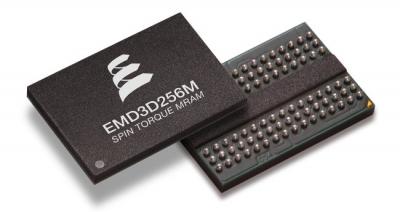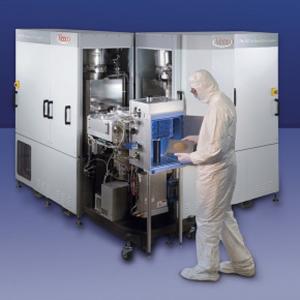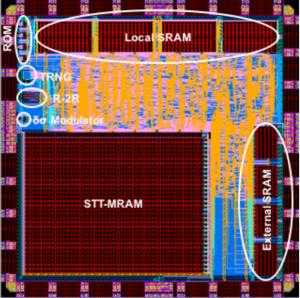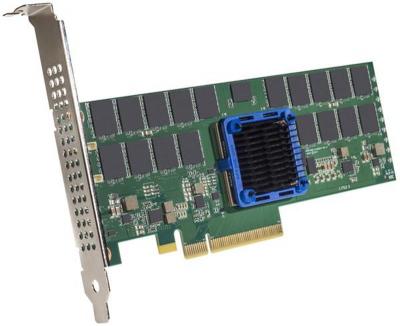Researchers develop a process to form single-crystal CMRs on metal wires
Researchers from Japan's National Institute of Advanced Industrial Science and Technology (AIST) developed a new process, based on 3D stacking, that forms a single-crystal TMR device on a polycrystal metal wire.
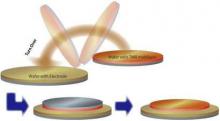
The stacking process creates the TMR thin-film on a single-crystal silicon wafer and then bonds it to a CMOS on another wafer. This opens the way to using these materials in high-performance MRAM devices. The single-crystal TMRs reduces the variation in the device and can enable smaller TMRs. The researcher say that it will take up to 2 years to completely develop the new 3D stacking process.
